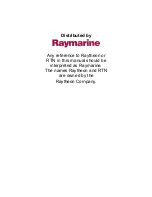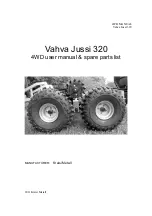
Page 15
© 2019 MSA
P/N 10103008
ENGLISH
INSTRUCTIONS FOR USE
The Anchorage Connector Strap/Sling/Cable is primarily a component of a personal fall arrest system, serving as an anchorage connector between the anchor
point or anchor construction and the personal fall protection equipment, preventing the user from falling from a height, in accordance with EN795:2012 and
Directive 89/686/EEC or Regulation (EU) 2016/425, respectively.
It may also be used, depending on the associated system components, for work positioning, travel restriction, rescue, retrieval, evacuation and confined space
entry/exit operations, but shall not be used outside its limitations and intentions or for lifting purposes.
The Anchorage Connectors are capable of withstanding a force of 22kN without breaking.
The Thermatek™ Anchorage Connector Strap with a minimum breaking strength of 22kN uses a nylon wear pad to protect the Aramid Fiber from abrasion only;
wear pad must be on the strap during use. (Figure 1E)
When install the Anchorage connector, follow the sequence:
Step 1: Wrap the Anchorage Connector Strap around the anchorage. More than one wrap may be possible on smaller anchorage structures. The label must face
upward when passing over the anchorage.
Step 2: For anchorages, figures ‘C’, ‘D’ and ‘E’, pull the D-ring of the Anchorage Connector Strap through the loop on the other end. Cinch tight.
Step 3: Verify that the Anchorage Connector Strap is stable and not exposed to sharp edges or other hazards. For anchorages, figures ‘C’, ‘D’ and ‘E’, verify that
the D-ring is pulled completely through the loop of the Anchorage Connector Strap and will hang freely down in the direction in which loads will be applied.
When attaching MSA Anchor sling, figure ‘A’, adjust sling to align both flemish eyes at equal below the anchor structure. When the anchorage structure has sharp
edges or corners, it may become necessary to pad these edges or corners in order to maintain the integrity of the anchor sling. Ensure that the maximum angle of
45° is not exceed at the connection point. (See figures)
Check all connectors to ensure they are closed and locked before use.
Regularly check fastening and/or adjustment elements during use.
It is the responsibility of the user of MSA Anchorage Connector to assure that they are made familiar with these User Instructions and trained by a competent
person. Ensure that you have been adequately trained in the use of this Anchorage Connector equipment and make sure that you fully understand how it works.
Chemical hazards, heat and corrosion may damage the Anchorage Connector. More frequent inspections are required in these environments. Do not use in
environments with temperatures lower than -30°C and greater than 50°C. Use caution when working around electrical hazards, moving machinery and abrasive
surfaces.
The user must have a rescue plan and the means at hand to implement it; and that plan must take into account the equipment and special training necessary to
effect prompt rescue under all foreseeable conditions.
Assigning the Anchorage Connector to a user to allow tracking of Anchorage Connector usage is recommended. These instructions and record card should be
issued with and kept with each Anchorage Connector.
All components connected to this Anchorage Connector MUST be compatible. Anchor devices are only to be used with CE marked fall arrest systems (EN 353-
2, EN 355, EN 360), which will not generate forces in excess of 6kN at the anchor device. Instructions and warnings of components used with this Anchorage
Connector MUST be followed.
Good medical fitness of the user is necessary in order to carry out work at a height. Certain medical conditions can threaten the users’ safety during normal use of
Anchorage Connector and in emergencies (taking medications, cardiovascular problem, etc. ). In any case of doubt, consult your physician before using. Pregnant
women and minors MUST NEVER use the Anchorage Connector.
WARNINGS
A full body harness is the only acceptable body holding device that can be used in a fall arrest system.
The Anchorage Sling must be used only for 1 person. The lower attachment point of the anchorage connector must not be raised because the falling height will
increase.
When attaching a fall arrest system, choose an anchorage point directly ABOVE the user’s position to minimize swing falls. Avoid any point on which strength is
doubtful. Structural anchors provided for the purpose (in accordance with EN 795) or anchorage points with a minimum strength of 12kN MUST be used. Potential
for falls and fall distance MUST be minimized.
The Anchorage Connector MUST be fully inspected before each use to verify that it is in serviceable condition. Additionally, the Anchorage Connector MUST be
inspected once every twelve months by a competent person authorized by current legislation in the country of use. Examine the Anchorage Connector for severe
wear, cuts, burns, frayed edges, abrasion, or other damage. Examine stitching for any pulled, loose, or torn stitches. Examine the legibility of the product markings.
Do not use Anchorage Connector until confirmed in writing by a competent person if inspection reveals an unsafe condition.
Consideration MUST be given to the necessary minimum clearance below the user to prevent a collision with the structure or the ground. Specific recommendations
will be given with the sub-system.
DO NOT modify or attempt repairs on the Anchorage Connector.
If the Anchorage Connector has been subjected to fall arrest or impact forces, it MUST be immediately removed from use and destroyed.
DO NOT install or use where device may encounter electrical hazards.
DO NOT use the MSA Anchorage Connector unless a qualified person has inspected the workplace and determined that identified hazards can be eliminated or
exposures to them prevented.
When installing or removing the Anchorage Connector, limit exposure to fall hazards. A separate independent fall arrest system may be required.
ENGLISH
Summary of Contents for 10103219
Page 6: ...Page 6 2019 MSA P N 10103008 2 A 45 45 45 B...
Page 7: ...Page 7 2019 MSA P N 10103008 2 C...
Page 8: ...Page 8 2019 MSA P N 10103008 2 D E F 18 19 Sharp edge protector...
Page 9: ...Page 9 2019 MSA P N 10103008 3 4...
Page 30: ...Page 30 2019 MSA P N 10103008 MSA MSA MSA 10...
Page 42: ...Page 42 2019 MSA P N 10103008 MSA MSA MSA 10 UV...
Page 54: ...Page 54 2019 MSA P N 10103008 MSA MSA MSA 10...
Page 58: ...Page 58 2019 MSA P N 10103008 MSA MSA MSA 10...
Page 63: ...Page 63 2019 MSA P N 10103008...
Page 64: ...Page 64 2019 MSA P N 10103008...
















































